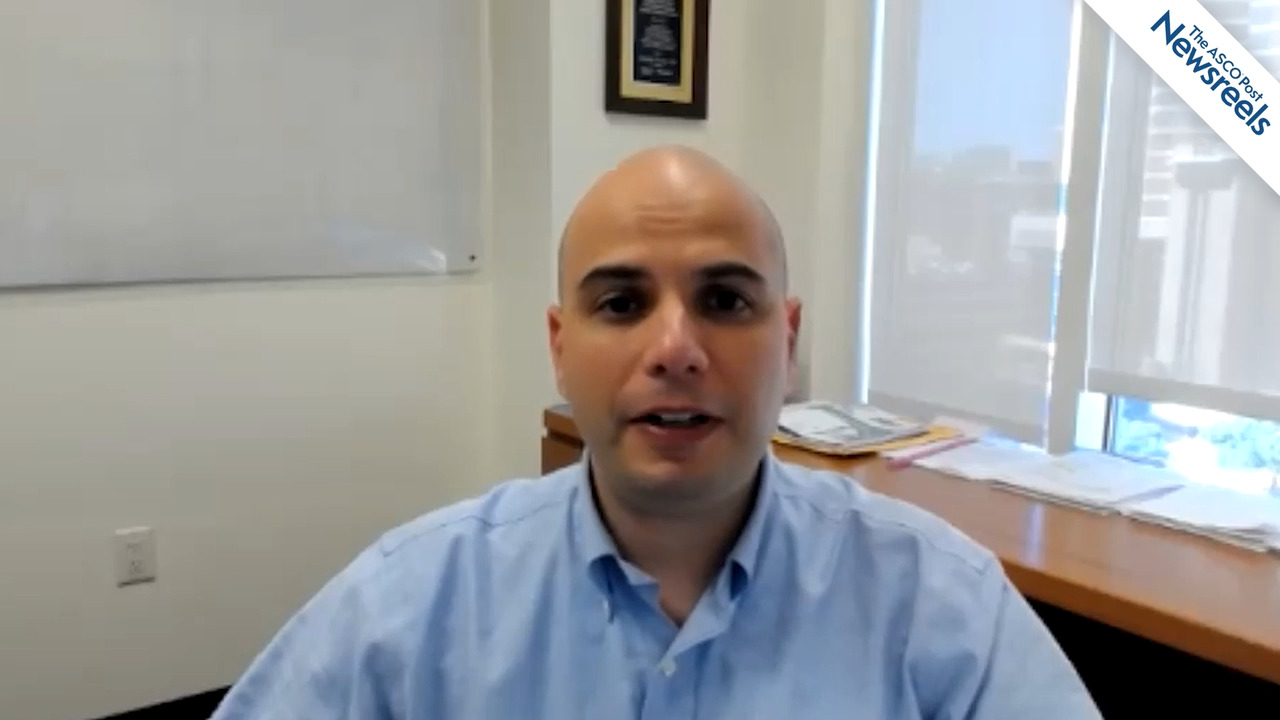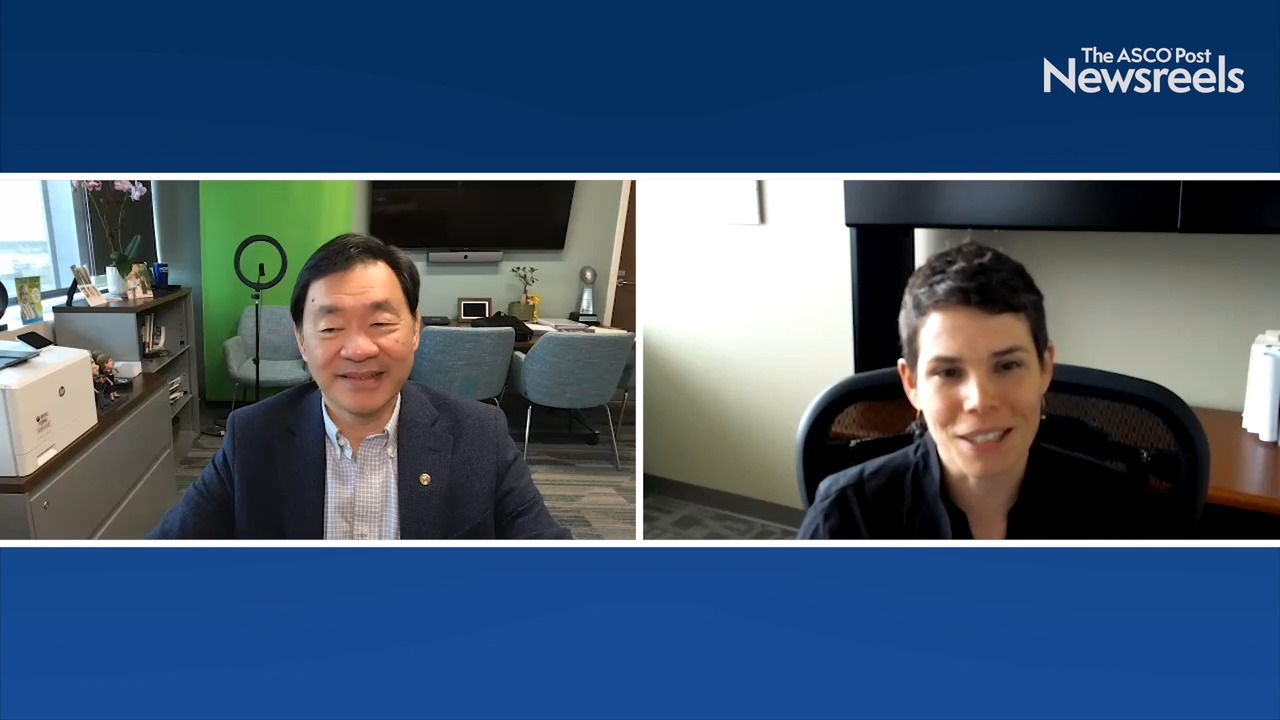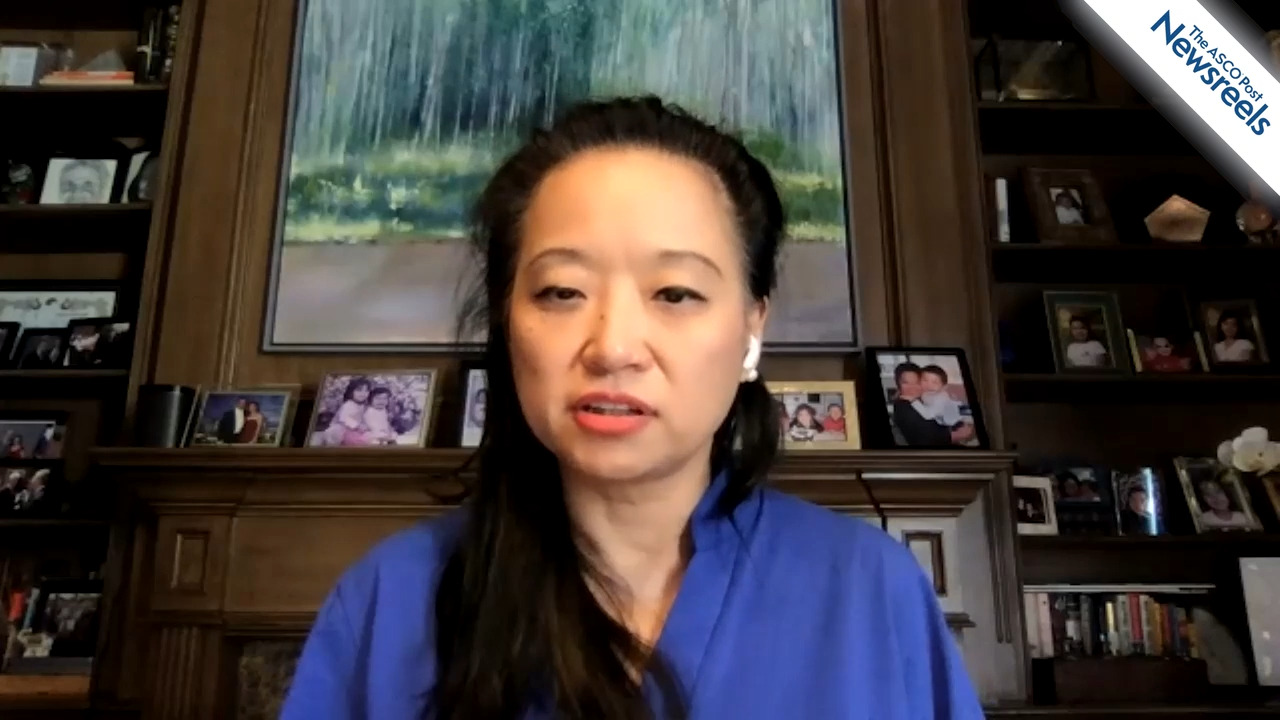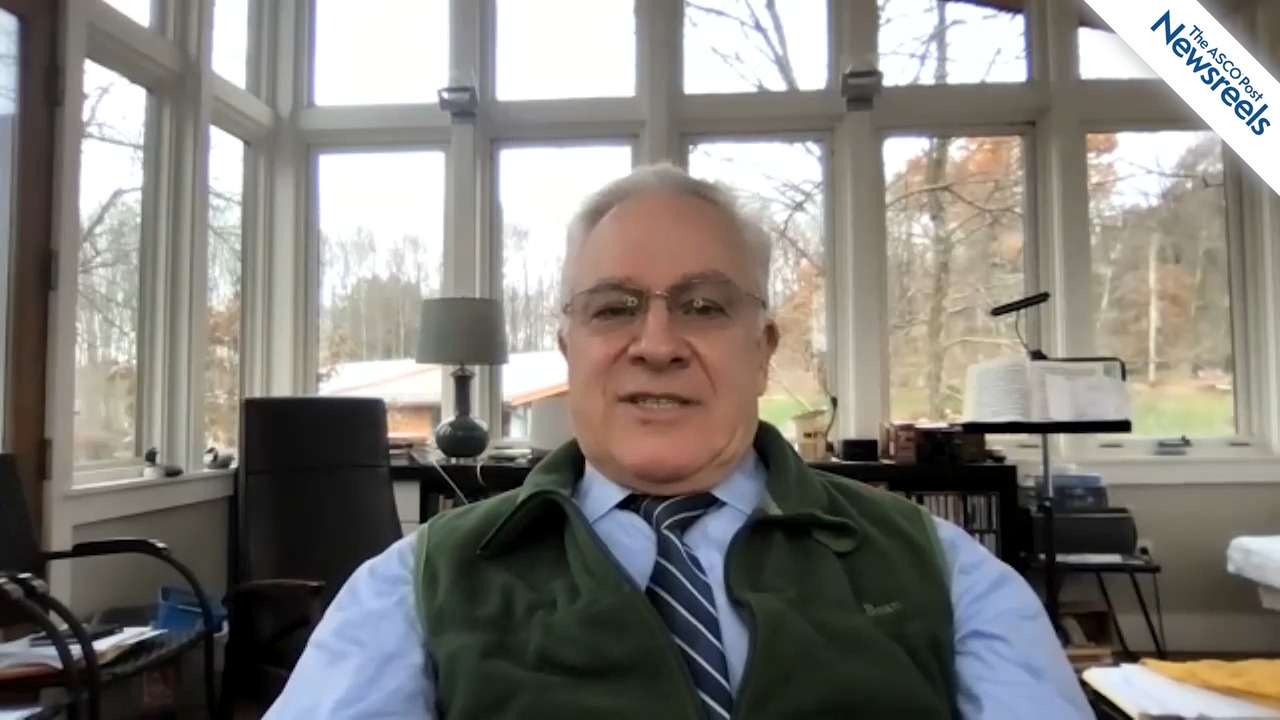Hannah E. Dzimitrowicz, MD, on COVID-19 Vaccination in Patients With Cancer Receiving Immune Checkpoint Inhibitors
SITC 2021
Hannah E. Dzimitrowicz, MD, of Duke Cancer Center, discusses study results showing that in patients with melanoma and renal cell cancer receiving immune checkpoint inhibitor therapy, the COVID-19 vaccination appears to be well tolerated and safe. A higher rate of post-vaccination symptoms reported in these patients is likely related to more frequent visits compared with controls (Abstract 625).
The ASCO Post Staff
Mehmet Altan, MD, of The University of Texas MD Anderson Cancer Center, discusses findings from a phase Ib dose-escalation study, which showed early evidence of activity for NKTR-255, an investigational IL-15 receptor agonist, plus cetuximab in patients with solid tumors. Treatment appeared to lead to expansion and proliferation of NK and CD8+ cells (Abstract 957).
The ASCO Post Staff
Patrick Hwu, MD, of Moffitt Cancer Center and President of the Society for Immunotherapy of Cancer (SITC), and Mary Dean, JD, CAE, SITC Executive Director, discuss the organization’s mission, strides made in cancer immunology, meeting the challenge of immunoresistance, and the new SITC app for clinical practice guidelines. This app places a useful tool in the hands of health-care providers, one that can be continually updated as the science evolves.
The ASCO Post Staff
Lynda Chin, MD, of the University of Texas, Austin Dell Medical School and Apricity Health, discusses precision medicine, barriers to its progress, and the challenges that must be met to facilitate better outcomes for patients. Building evidence and trust is key, Dr. Chin explains, as is developing an infrastructure that allows more clinicians to take part in the process.
The ASCO Post Staff
Yevgeniy R. Semenov, MD, of Massachusetts General Hospital and Harvard Medical School, discusses new findings suggesting cutaneous adverse events such as vitiligo, lichenoid dermatitis, and psoriasis—which often occur in patients with cancer who receive immune checkpoint inhibitors—may be strongly associated with response to therapy and a 22% reduction in mortality (Abstract 814).
The ASCO Post Staff
John M. Kirkwood, MD, of the University of Pittsburgh Medical Center, discusses phase Ib findings on the combination of vidutolimod plus pembrolizumab, as well as vidutolimod monotherapy, both of which showed clinical activity in patients with PD-1 blockade–refractory melanoma. The duration of response with the combination therapy was substantially longer. Phase II studies are ongoing (Abstract 950).





